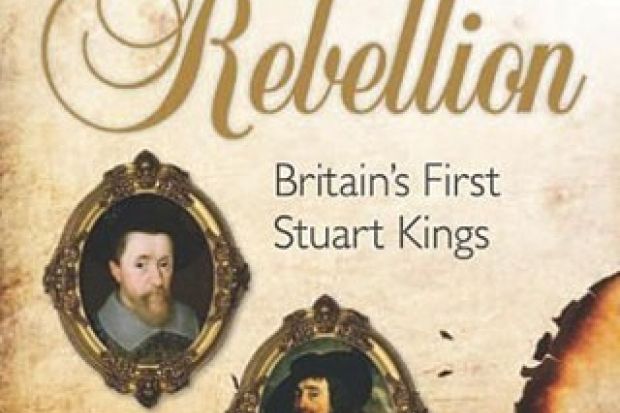Over the past quarter of a century, Tim Harris has established himself as one of the leading historians of the late Stuart period in Britain, and among his many achievements has been a large narrative history of that age. Now he has produced a companion volume on the earlier Stuarts, intended explicitly as a major intervention in the long-running, and recently flagging, debate over the origins of the English Civil War. This concentration of purpose gives the whole work a powerful unity. The first 36 years of the period are covered in 17 pages, while the last three years, culminating in the Civil War itself, take up more than a hundred. The whole of the late 16th century, indeed, is examined only in Scotland, where it furnishes the formative years of James VI, who from 1603 was Britain and Ireland’s first Stuart king as James I, and so a major player in the story.
The debate to which it contributes, waged mostly between the 1970s and 1990s, was between proponents of the traditional argument for the causes of the Civil War, that they were rooted at least partly in long-term and profound social and economic change, and revisionists who claimed that it sprang from personal differences of political and religious belief and structural problems in government, and was largely contingent on accidents of personality and fortune. Harris is too nice a man to deal brutally with any of the participants. When he names anybody it is to praise them, while the opinions with which he takes issue are either left anonymous or have attributions tucked away in footnotes; and even then he always finds some virtue in the views that he is amending. Nonetheless, his overall drift is clear, to restate much of the force of the traditional picture against the revisionist one, by asserting that while the war was certainly precipitated by short-term factors, these were potent only because of “the longer-term political, religious, social, economic and cultural contexts, which, even if they do not possess strong causal significance, certainly possess great explanatory significance”. If any previous historian emerges as especially favoured, it is the leading traditionalist Lawrence Stone, for his three-stage model, propounded in the 1970s, in which long-range, medium-range and short-range causes all have importance.
The problem with this conclusion is that the book has virtually nothing in it about the economy, society and culture, except when bound up with politics and religion. It is, in fact, a splendid restatement of the compound revisionist case, in that it shows how differing religious and constitutional ideologies became supercharged by the mistakes of James and Charles I, a collapsing system of royal finance, and the strains of combining three very different kingdoms under one ruler, to produce a bloody breakdown of government all across the British Isles. All that is post-revisionist about all this is that ideological clashes are given a further weighting of importance against functional strains and personal differences and choices.
The result is actually an outstandingly successful book, in producing a summary of four decades of discussion that is well-written and well-researched enough to look consensual. Better than anybody before, and in more detail, Harris shows how the Stuarts inherited an English state with three serious weaknesses: one of the most inefficient systems of royal finance in Europe; an ill-defined national Church in which opposed ideologies pulled strongly in opposite directions; and a body of constitutional theory and practice that also embodied contradictions and was not equal to the financial and religious problems now presented. What made all this much worse was the arrival of a foreign and unfamiliar royal family who also had custody of Scotland and Ireland, nations with their own very different and serious divisions, which could worsen instability in England. Brilliant leadership would have been needed to find lasting solutions to this situation, and James succeeded only in keeping the peace while exacerbating the underlying tensions, while Charles, trying bolder remedies, precipitated a complete collapse. It is a thoroughly convincing portrait, fluently sustained through such a large and readable book, and as such deserves to take its place as the standard student text on the period.
Rebellion: Britain’s First Stuart Kings, 1567-1642
By Tim Harris
Oxford University Press, 608pp, £30.00
ISBN 9780199209002
Published 9 January 2014
Register to continue
Why register?
- Registration is free and only takes a moment
- Once registered, you can read 3 articles a month
- Sign up for our newsletter
Subscribe
Or subscribe for unlimited access to:
- Unlimited access to news, views, insights & reviews
- Digital editions
- Digital access to THE’s university and college rankings analysis
Already registered or a current subscriber?





